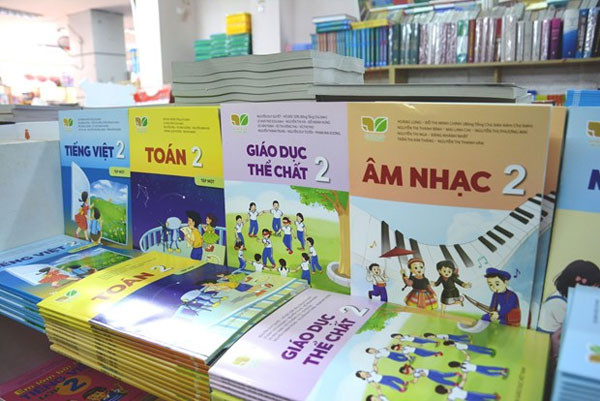
Deputy Minister of Education and Training Pham Ngoc Thuong said at a meeting on price management of important and essential commodities early this week that the move was made following the Ministry of Finance's proposal.
The Ministry of Finance has requested the ministry to submit to the Government a price management plan for educational services to ensure the target of inflation control.
The adjustment of commodity prices must be carefully assessed with the impacts on the CPI to ensure room for inflation control. As petrol prices are projected to change in the last months of the year, which will affect the CPI, the adjustment of educational service prices should be carefully calculated, according to the finance ministry.
According to the General Statistics Office of Vietnam, an increase in the price of education services could lead to a rise of 0.55-1.05 per cent in the average CPI of Vietnam in 2022; and an increase in tuition fees for the 2022-23 school year will increase the CPI by 1.5-2.8 per cent.
Regarding tuition fees, Thuong said that according to the Decree 81/2021/NĐ-CP, the Government would set a framework and ceiling of tuition fees for each locality, and they will decide on a specific level of tuition fees for each academic year within that framework.
Due to the impacts of the pandemic, the ministry advised and got the Government's approval to keep tuition fees unchanged for the 2021-22 school year.
However, starting from September 2022, there will be a roadmap to increase tuition fees in line with current regulations. Under this roadmap, public preschool education fees will increase by about 75 per cent, and university fees will increase by about 12.5 per cent.
Regarding textbook prices, according to Deputy Minister of Finance Vu Thi Mai, the prices of textbooks are currently managed according to the Law on Education and the Law on Prices. Textbooks are on the list of goods for which price declaration is made and not on the list of goods whose prices are determined and stabilised by the State.
In the academic year 2022-23, the Ministry of Finance has presided over and coordinated with the Ministry of Education and Training to receive declarations of textbook prices and send written requests to units to review and implement cost-saving measures to control inflation and ensure social security.
Up to now, the publishers have declared plans to reduce the price of textbooks in the common range of 5 to 15 per cent depending on each book.
Currently, the Ministry of Finance is holding a public consultation on the amendment of the Law on Prices. This amendment has included textbooks in the list of goods of which the prices are managed by the State and assigned the Ministry of Education and Training to regulate the price of textbooks.
Technical and professional textbooks must have reasonable prices to meet professional requirements in education and training.
Mai also said that for the academic year 2022-23, the Ministry of Education and Training proposed that ministries, branches, people's committees of provinces, cities and educational institutions develop appropriate tuition rates and tuition fee increase roadmaps, contributing to price stabilisation and social security.
Policies to support exemption and reduction include an extension of time to pay tuition fees and keeping textbooks for disadvantaged students. At the same time, inspection, supervision, publicity and transparency of information on educational services, prices of textbooks, educational supplies and equipment should be strengthened.
Director General of the General Statistics Office Nguyen Thi Huong said due to the pandemic, State support was still available, but when there was no support from the State, there must be solutions so that provinces and cities do not simultaneously increase the price of education services.
Regarding textbooks, Deputy Prime Minister Le Minh Khai asked for the careful study of provisions of the law on prices to manage prices in accordance with the current situation so that all students can access textbooks at reasonable prices.
"Textbooks are essential goods, which every student must buy, so compiling and printing books needs to be carefully calculated to not put more burden on students," said Khai.
Source: Vietnam News